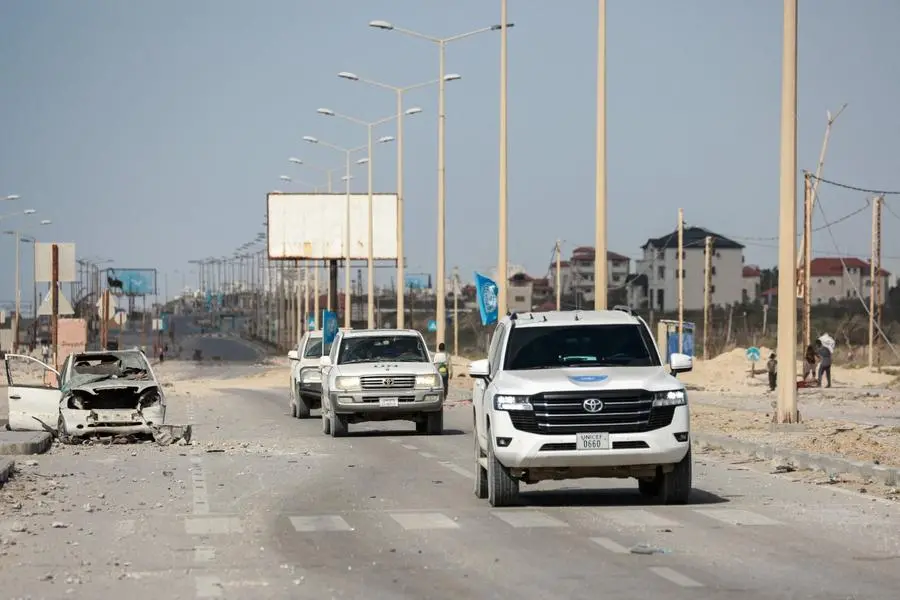PHOTO
The United Nations needs a direct hotline to Israeli forces fighting in Gaza to combat mistrust and deliver aid safely and effectively, the outgoing UN humanitarian coordinator insisted Friday.
Rather than going through liaison bodies, the UN and other humanitarian actors "need to be speaking to people who are firing guns", Jamie McGoldrick told a press briefing in Geneva.
The Israel Defence Forces and humanitarian groups in Gaza need to understand each other better, he said following a final visit to the Palestinian territory at the end of a three-month posting as interim humanitarian coordinator in the Palestinian territories.
"If we have a serious security incident, we don't have a hotline," he said, speaking by video-link from Jerusalem.
"The IDF have never worked with humanitarian organisers before in this type of environment. They don't understand how we function, they don't understand our language and what our purpose is. And we don't understand their expectations.
"There's a degree of mistrust and misunderstanding that we have to address.
"We want to work with them differently."
He said agencies had been warning Israel about the flawed notification system before the April 1 fatal attack on staff from the World Central Kitchen (WCK) charity.
"We've been asking for a couple of things since day one," McGoldrick said.
"We don't deal directly with the IDF. We need to be speaking to people who are firing guns and controlling weaponry and we have to build up an understanding."
"The deconfliction system and the notification system are not fit for purpose.
"We have to have a hotline and the ability to speak to them."
Since the WCK attack, which killed seven aid workers and triggered an international outcry, McGoldrick said: "I don't think there's been any notable improvement in terms of our ability to move around", and humanitarian workers "fear for their own safety".
McGoldrick met this week with Major General Yaron Finkelman, head of the IDF Southern Command to try to straighten out some problems.
"We pressed the point that we have to have a system that allows us to be safe," he said.
McGoldrick said that in the weeks ahead, "if we don't have the chance to expand the delivery of aid into all parts of Gaza, but particularly to the north, then we're going to face a catastrophe".
The war began with Hamas's unprecedented October 7 attack against Israel which resulted in the deaths of 1,170 people, mostly civilians, according to Israeli figures.
Israel's retaliatory offensive has killed at least 33,634 people in Gaza, mostly women and children, according to the health ministry in Hamas-run Gaza.





















